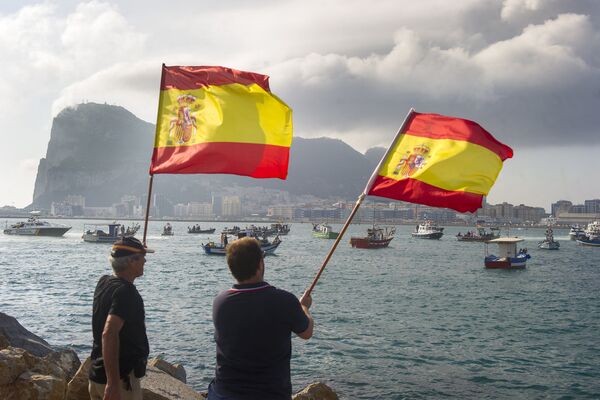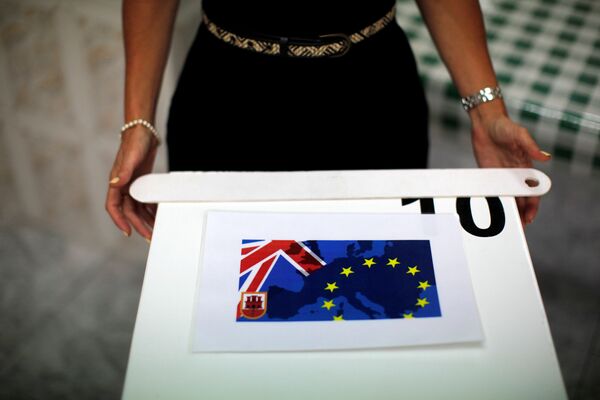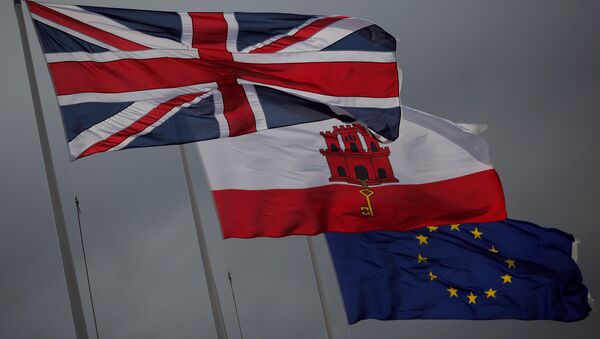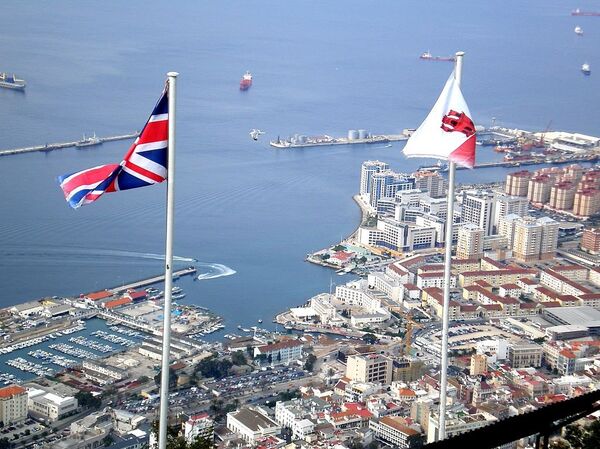The reason it is so important to establish Mr. Howard's background in such detail is to emphasize the fact that even those who have had the best education that money can buy, and enjoyed careers in law and frontline politics, are capable of suffering intellectual collapse. Proof of this came in a BBC interview in which Michael Howard asserted that Britain would be willing to go to war with Spain over Gibraltar.
Mr. Howard, it seems clear, has lost the plot.
In case you are unaware, Gibraltar is a tiny strip of land that abuts southern Spain. In fact, Gibraltar is connected to southern Spain in much the same way Cornwall is connected to southern England. This makes it unconscionable that in 2017, Gibraltar remains a British Overseas Territory. As with the Islands of the Malvinas (Falkland Islands) in the South Pacific, along with various other British Overseas Territories around the world, Gibraltar is a relic of British colonialism and as such an historical anomaly whose status is long overdue for a rethink.
The context to the current spat over Gibraltar is Brexit — i.e. the UK's vote to leave the EU. Rather than usher in a renewal of British sovereignty, democracy, and importance on the global stage, as its supporters and proponents envisaged, Brexit has exposed the country's political establishment as the very epitome of incompetence, made worse by its delusions of imperial grandeur. Indeed it appears a collective madness has been unleashed, wherein 19th century verities of empire and colonialism are increasingly replacing political language and attitudes that are consonant with the 21st century.
In fact, it is almost as if the statues and monuments to the country's imperial past that are dotted around Westminster have come to life to lead Britain back in time to when Britannia ruled the waves and Johnny Foreigner knew his place, buoyed by the words of that most famous chronicler of the British Empire, Rudyard Kipling.
To wit:
Our ears still carry the sound
Of our once-Imperial seas,
Exultant after our King was crowned,
Beneath the sun and the breeze.
It is too early to have them bound
Or sold at your decrees.
Gibraltar has been a British territory since 1704, after it was taken by force by a British naval expedition during the Wars of the Spanish Succession. British sovereignty over Gibraltar was later ratified in 1713 under the auspices of the Treaty of Utrecht. Unlike Britain's claim, however, which is rooted in international piracy, Spain's claim to Gibraltar is rooted in international law, specifically UN Resolution 1514, passed in 1960, on the granting of independence to colonial countries and peoples.

Nobody, at least nobody serious about resolving the issue of the status of colonial territories such as Gibraltar, is suggesting that the 30,000 or so inhabitants of the peninsula should be forced to relinquish their British citizenship. There is nothing stopping said citizenship being upheld under a joint-sovereignty arrangement with Spain. But if this is not good enough, then surely they could be repatriated to the UK. After all, where better to be British than in Britain itself?
Looming over this spat is of course Britain's military conflict with Argentina over the Falkland Islands (Los Malvinas) in 1982. Located 8000 miles from the UK and 950 miles from Argentina, the islands have long been the subject of dispute, one that is yet to be resolved.
The conflict over the Falklands began when Argentina seized the islands by by force, prompting then UK Prime Minister, Margaret Thatcher, to dispatch a naval and military task force to seize them back. The resulting conflict ended in the deaths of 639 Argentinian servicemen, 255 British, and 3 civilians. Cutting through the miasma of propaganda surrounding the conflict were the words of Argentinian writer Jorge Luis Borges, who described it as "two bald men fighting over a comb."

The irony, of course, is that Brexit has seen not only the issue of sovereignty over Gibraltar being raised, but also the issue of Irish reunification and Scottish independence being put firmly back on the table, throwing up the prospect of the UK being reduced to a rump state.
We can only imagine what Rudyard Kipling would have to say about that.
The views expressed in this article are solely those of the author and do not necessarily reflect the official position of Sputnik.



